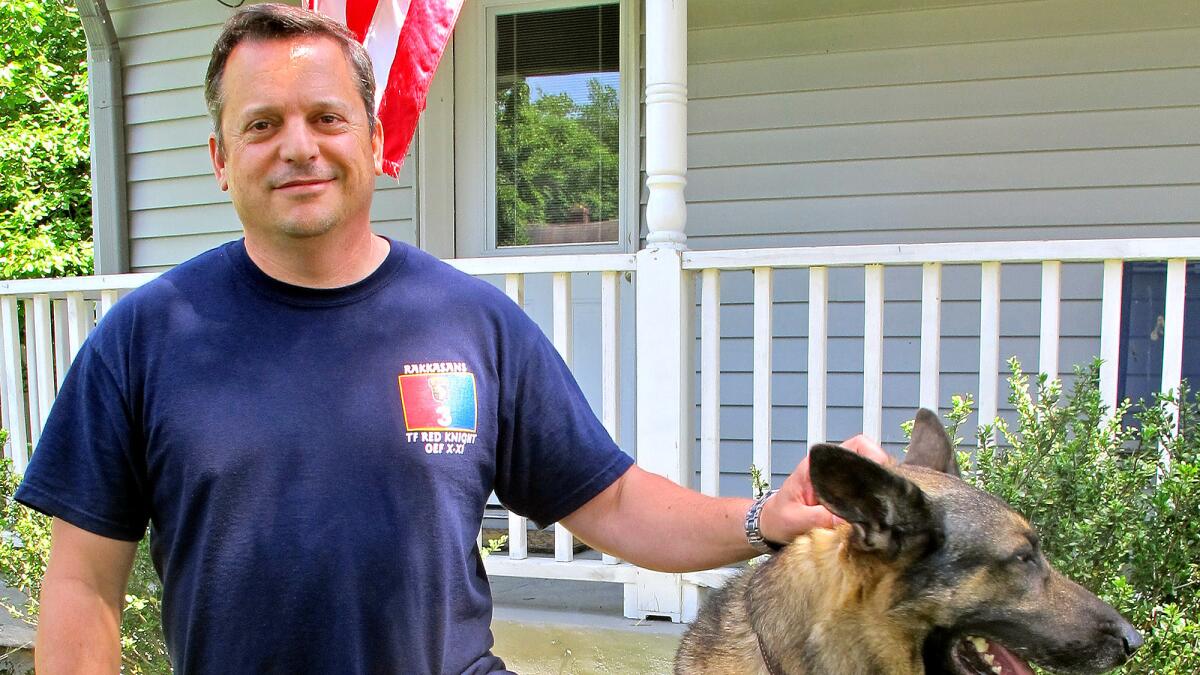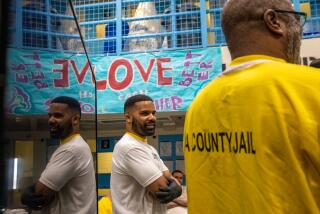War-veteran-turned-counselor helps others out of a familiar darkness

Like thousands of other American soldiers, Douglas Pearce fell apart after he came home from Afghanistan. He was diagnosed with post-traumatic stress disorder, traumatic brain injury and depression. He considered suicide.
“Living seemed a much more difficult thing than just dying,” he recalled. “If this is all life has to offer, maybe I should opt out, just end it all.”
Pearce endured months of difficult therapy, and through the process, set himself on a course to become a therapist himself. Now he’s Douglas M. Pearce, marriage and family therapist in training.
Pearce completed a three-year marriage and family counseling program at a local university in May. He opened his own counseling practice in Brentwood, Tenn., outside Nashville, focusing on helping first responders and veterans while also providing marriage and couples counseling. He calls it the Authentic Life Center.
Pearce’s career choice is unusual among veterans struggling to confront their combat demons linked to faraway Afghanistan and Iraq. He not only counsels fellow combat veterans, but also helps ordinary people face the stresses and disappointments of daily life here in America. But first he had to heal himself.
As part of an internship, Pearce counseled several troubled soldiers at his former base, at nearby Ft. Campbell, Ky., after leaving the service in 2012.
“I saw people who were in the same dark place I was,” he said. “I was able to enter that darkness with them and help, because I was in that place for so long.”
As he counseled soldiers, Pearce kept thinking about an Army counselor who had helped him confront his PTSD, his thoughts of suicide and the pain of a divorce. “He saved my life,” Pearce said. “He helped me find hope again.”
He remembers telling the counselor, “I want to do what you’re doing.”
Even as he counsels others, Pearce is still on what he calls “my healing journey.” But his personal ordeal helps him understand clients and form deep bonds with those who are in “that same dark place,” he said.
He rarely told patients at Ft. Campbell that he was an Army veteran. He didn’t want to put the focus on himself or get bogged down trading war stories.
But one soldier suffering from PTSD reminded him of his own combat trauma, so Pearce described to him his PTSD and suicidal thoughts. The soldier told him he felt for the first time that healing was possible, and he slowly began to recover.
“I was able to enter that darkness with him and help,” Pearce said. “I knew exactly what it was like to be there.”
Pearce said he was able to help another troubled soldier and his wife whose marriage was collapsing. He focused on showing them the cause of the pain that was dividing them — the same pain and despair he felt from his own PTSD and divorce.
“Sitting there with that couple, I realized I was doing exactly what I was created to do,” he said.
Even as he heals, Pearce still cannot shake memories of the worst day of his life: April 20, 2010, on a stretch of highway in eastern Afghanistan.
Soldiers commanded by Pearce, then a U.S. Army lieutenant, opened fire on a vehicle that sped toward their convoy. The driver ignored shouts, honking, flashing lights and warning shots.
The soldiers were devastated when they discovered they had killed four innocent Afghans — a 12-year-old boy, his father and uncle and an off-duty police officer.
They were on their way home from a volleyball game. They were unarmed. No one knows why the driver failed to stop.
Pearce still can’t let go of something else that happened the day of the shootings, an event that still triggers nightmares and anxiety. A soldier assigned to help investigate the shooting told him he had made it appear that the fingerprints of some of the victims matched those of known insurgents in a military database, Pearce recalled.
“He thought he was helping me out,” he said. Instead, it only made him feel more guilty, even though the lie was eventually corrected.
What troubled him most, Pearce said, was the likelihood that friends and family members of the dead Afghans believed his soldiers had deliberately targeted innocent people.
“I can only imagine the heartbreak they felt,” he said. “I want them to know we handled those remains with respect. We prayed for them. I still pray for them.”
Although he didn’t fire on the victims himself, Pearce believes he should have somehow found a way to spare their lives. “I’m responsible — I’m the one who trained my soldiers,” he said. “In some ways, I think it would have been easier if I had been the one who pulled the trigger.”
Four years later, Pearce still sees the boy’s face in his nightmares. His jaw had been blown off.
An Army investigation cleared Pearce’s troops of wrongdoing, but it did not clear Pearce’s conscience. He hadn’t pulled the trigger, but he shouldered the responsibility for killing four innocent people.
“I wished there was some way I could have told that boy’s father I was sorry,” he said.
As part of his own therapy this year, Pearce was told to release his guilt by burning a newspaper photo of four caskets at the victims’ funeral — a clipping he had kept for nearly four years.
Even as he counsels others now, Pearce said he would never be “completely cured,” as he put it. But he believes he’s moving closer to becoming whole again.
“I owe it to that 12-year-old boy and those three men to live a life of purpose by helping other people heal,” he said.
Twitter: @davidzucchino
More to Read
Start your day right
Sign up for Essential California for news, features and recommendations from the L.A. Times and beyond in your inbox six days a week.
You may occasionally receive promotional content from the Los Angeles Times.







